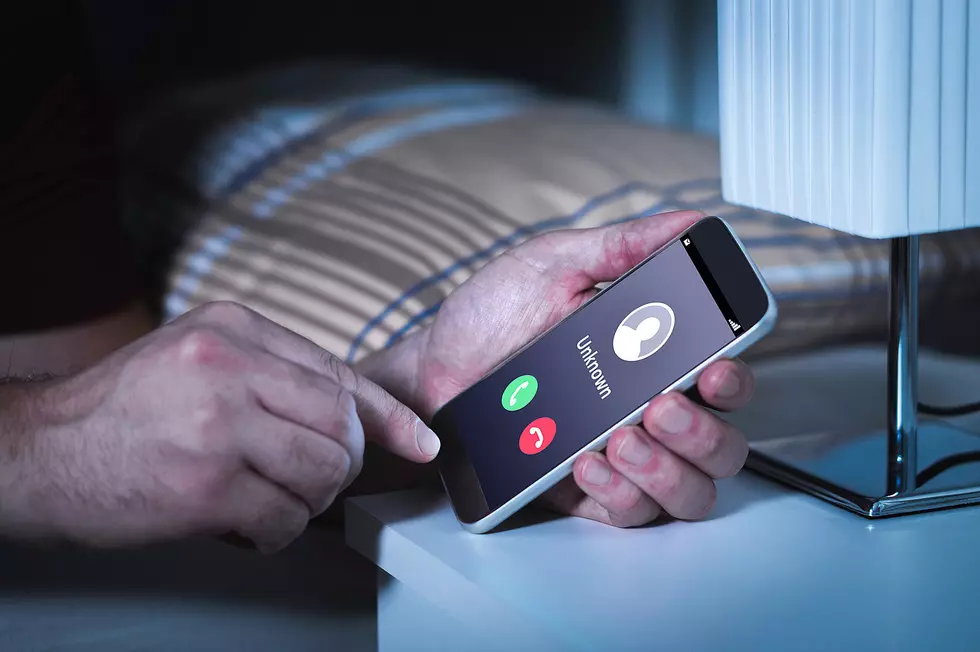
FBI Denver Warns of Scammers Spoofing FBI Phone Numbers
The Denver, Colorado division of the Federal Bureau of Investigation is warning the public about a new phone scam.
According to a press release, the scammer spoofs, or fraudulently displays, the FBI’s real phone number on the victim’s caller ID. The scammer then impersonates a government official and uses intimidation tactics, like the threat of arrest, to demand payment of money allegedly owed to the government. These claims are false and the calls are not from the FBI.
The FBI Denver Division says that it has seen its main number, (303) 629-7171, spoofed in this manner recently, as well as the numbers of its Resident Agencies, or satellite offices, throughout Colorado and Wyoming. Citizens nationwide have been targeted.
Officials say this scam is called government impersonation fraud. It's is a crime in which scammers impersonate government officials in an attempt to collect money. The scammers often threaten victims with physical or financial harm or the release of sensitive data. In some cases, the intended target may be told there is a federal warrant for their arrest, which would be dismissed by the court in exchange for immediate payment to the caller.
The caller will oftentimes know the full name, extensive background, birthdate, family members, and/or personal cell phone number of the intended victim the FBI said. Adding that there are a number of ways individuals with criminal intentions can obtain this information.
Unsuspecting victims may also be told the following:
- Their social security number has been compromised and linked to money laundering.
- Their social security number has been used to open bank accounts and that the government would seize those accounts.
- To protect their money, funds should be transferred to accounts specifically set up by the government, which would be protected until the situation is resolved, at which point the money would then be returned.
- Failure to transfer money could lead to loss of funds and possible arrest.
- To meet with a Social Security Administration Agent to verify identity; once complete, a new SSN would be issued so that a new bank account could be opened.
The public is reminded that the FBI does not call private citizens to request money or threaten arrest. The FBI reminds the public to limit the amount of personal information provided online.
Tips from the FBI to Avoid Becoming a Victim Scams:
- Always be suspicious of unsolicited phone calls.
- Never give money or personal information to someone with whom you don’t have ties and did not initiate contact.
- Before signing up for a contest or email distribution list, make sure the business has a policy not to share your information or sell it to a third party.
- Scammers count on your lack of knowledge, so take the time to educate yourself about any offer you receive.
- Trust your instincts: if an unknown caller makes you uncomfortable or says things that don’t sound right, hang up.
The FBI strongly encourages anyone contacted by a caller who says they are with the FBI or any government agency to verify the information with their local FBI Field Office or the government agency in question.
Additionally, the public should be aware that other law enforcement agencies in our community, such as the Drug Enforcement Administration (DEA), U.S. Social Security Administration, and local law enforcement agencies are also being impersonated using similar tactics as described above. If you receive a call of this nature, please contact these government agency’s offices and verify a representative of their agency contacted you in order to avoid being victimized.
People who have been victimized by this type of scam are encouraged to file a complaint with the FBI’s Internet Crime Complaint Center at https://www.ic3.gov.
Contact information for all 56 FBI field offices can be found at fbi.gov.
The Denver office covers Colorado and Wyoming: Denver.fbi.gov, (303) 629-7171
SOURCE: The FBI Denver Division

More From 101.9 KING-FM









